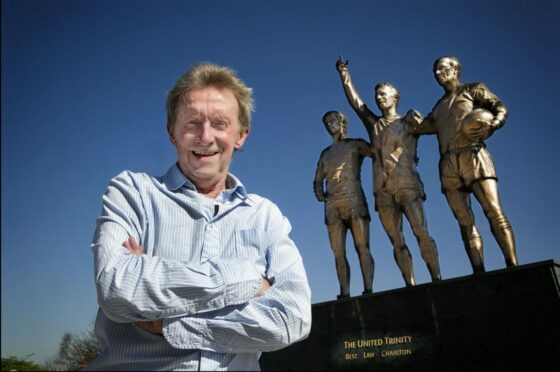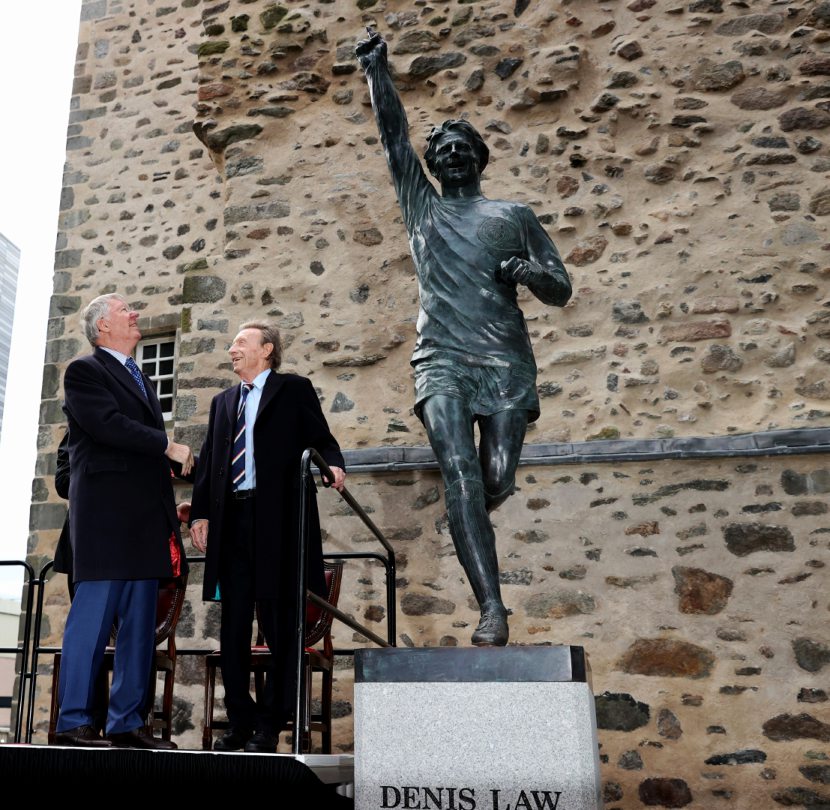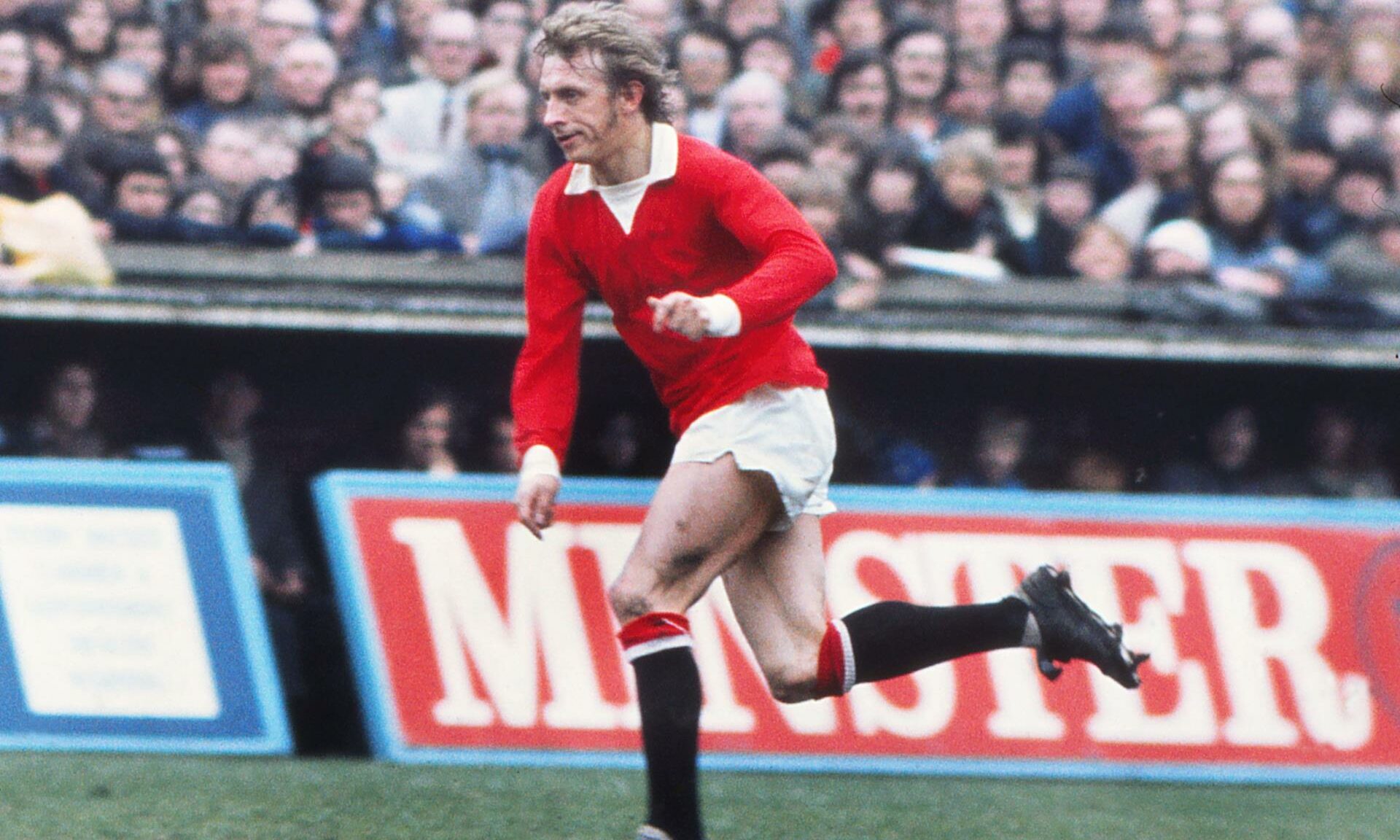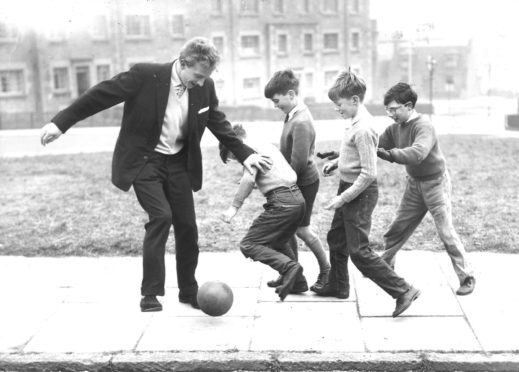The list of football knights is a stellar collection and nobody would begrudge the likes of Bobby Charlton and Kenny Dalglish their place in the pantheon.
Yet there is at least one notable omission which needs rectifying and it’s surely overdue for Aberdeen’s most famous son, Denis Law, to join the ranks.
This is a special weekend for the octogenarian: he and his wife, Diana, whom he first met at a dance hall in the Granite City during the summer of 1962 before they were married in a blaze of publicity at Holburn West Church on December 11, will be celebrating their 60th wedding anniversary in Manchester.
But while decades have come and gone since The Lawman was bewitching, bothering and bewildering opponents with his mesmerising runs and repertoire of tricks, he has campaigned tirelessly to help others gain the benefits of sport and exercise.
Humble beginnings
In his world, lack of money should never prevent anybody from having access to facilities and the chance to get involved in team pursuits. Law, himself, grew up in a deprived working-class neighbourhood in the late 1940s and 1950s. He couldn’t even afford a pair of football boots until he was a teenager. And he has never forgotten it.
The Denis Law Legacy Trust is forever grafting at the grassroots, committed to improving the lives of disadvantaged youngsters and creating amenities such as Cruyff Courts – there are are already two of these venues in Aberdeen and a third is under construction, offering a beacon of hope to those who can’t afford to pay for gym membership or splash out on an expensive set of golf clubs or tennis racquets.
These are exactly the sort of initiatives we might have expected from Law, one of the most down-to-earth and self-deprecating individuals who has ever graced the game.
At the height of his powers, he genuinely was a wondrous, mischievous sprite. He dazzled for Scotland and scored one of the goals when they famously defeated world champions England 3-2 at Wembley in 1967.
The statistics speak for themselves – he amassed 30 goals in 55 Scotland internationals and 237 goals in 404 appearances at Old Trafford and helped the club win the First Division in 1965 and 1967 – but they never told the full story.
Because, whether in refusing to celebrate his goal which consigned United to relegation after he moved to their great rivals, Manchester City in the 1970s, or in his obvious delight at performing alongside such stellar figures as George Best and Bobby Charlton, there is a decency, dignity and sense of derring-do stamped in his DNA.
Some former players become curmudgeonly types, forever bemoaning their conviction that their pursuit has gone downhill since they made their exit. But Law has never been one to dwell in the past. Instead, he has championed such causes as getting “No Ball Games” signs removed from communal areas and worked assiduously to promote the myriad benefits of sport in boosting health and tackling anti-social problems.
Praise from his peers
Gothenburg Great Willie Miller, who captained Aberdeen to a brace of European trophies in 1983, told me: “You can’t exaggerate his influence on the game.
“He’s the only Scottish player to have won the Ballon d’Or [in 1964], Pele once said he was the only British player who would have walked into the great Brazilian side of the 60s and, putting it simply, he is the greatest Scottish footballer who has ever lived.
“But it isn’t just his playing ability which means he is held in huge respect. Even now, he is helping to create a legacy for young people in his home city and I think everybody involved with the Trust deserves a lot of credit for the work that’s being done.”
The 82-year-old already has a CBE and was accorded the Freedom of Aberdeen in 2017 – which was bestowed on him, not just because he was a sublimely talented footballer, but for the fashion in which he has illuminated so many people’s lives.
As Lord Nicol Stephen said: “Denis is an iconic figure in Scottish football. He played with great distinction for his country, [then] there is his network of sporting initiatives throughout underprivileged areas of Aberdeen. He has also done considerable charity work for Meningitis Now and for Cancer UK.
“For all these reasons, I believe that the proposal for Denis Law to be given a knighthood is a very strong one.”
In the New Year, let’s have a new honour for this remarkable fellow.
Three other knights
Sir Bobby Charlton played alongside Denis Law at Manchester United and the pair helped the Old Trafford team to become the first English club to win the European Cup in 1968. Charlton, 85, was also a pivotal figure in England’s 1966 World Cup victory.
Sir Kenny Dalglish is the only Scottish footballer to have been knighted. The former Scotland, Celtic and Liverpool star, 71, won 102 international caps and, after retiring as a player, helped support the grief-stricken relatives following the Hillsborough disaster in 1989.
Sir Geoff Hurst, the West Ham stalwart, now 71, carved his name in the history books when he became the first man to score a hat-trick in a World Cup final as England beat West Germany 4-2 in 1966.







Conversation